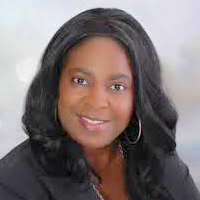News & Events
Iris Wagstaff, Ph.D.
Posted on November 9, 2018

When
Date - November 9, 2018
1:00 pm - 2:00 pm
What
Dr. Iris Wagstaff
Adjunct Professor of Chemistry
Department of Chemistry & Biochemistry
UNC Greensboro
Talk Title: “Innovations in STEM: Broadening Participation and Pathways to Success”
Abstract:
The need for broadening participation in STEM has been well-documented (National Academies of Sciences, Engineering, & Medicine; 2007, 2011). Economists continue to predict faster growth rates for STEM jobs compared to non-STEM jobs, and the U.S cannot keep pace with the current and future STEM workforce demands (Carnevale, Smith & Melton, 2011). This problem is heightened with respect to women, persons with disabilities, and racial/ethnic minorities who continue to be underrepresented and often discouraged from scientific pursuits (National Science Foundation, 2017). Moreover, it is projected that by the year 2050, minorities will be the majority for both adults and school-aged children (U.S. Census Bureau, 2018). To maintain competitiveness in a global economy that is increasingly more technically-based, the U. S. must leverage ALL its human capital. This requires creating educational and career pathways to develop the diverse talent needed to advance areas of priority such as health, energy, and national security. To this end, the American Association for the Advancement of Science (AAAS) – the oldest and largest multi-discipline scientific association in the world – develops and supports STEM education initiatives through its Education and Human Resources Division (EHR). The three-pronged foci of the EHR division is scientific literacy, broadening participation in STEM, and developing the STEM workforce. This presentation will highlight some of these educational and professional development efforts at the undergraduate and graduate levels, as well as, share evidence-based best practices and models for cultivating a diverse cadre of STEM professionals to tackle global problems at the intersections of science, education, and policy.





